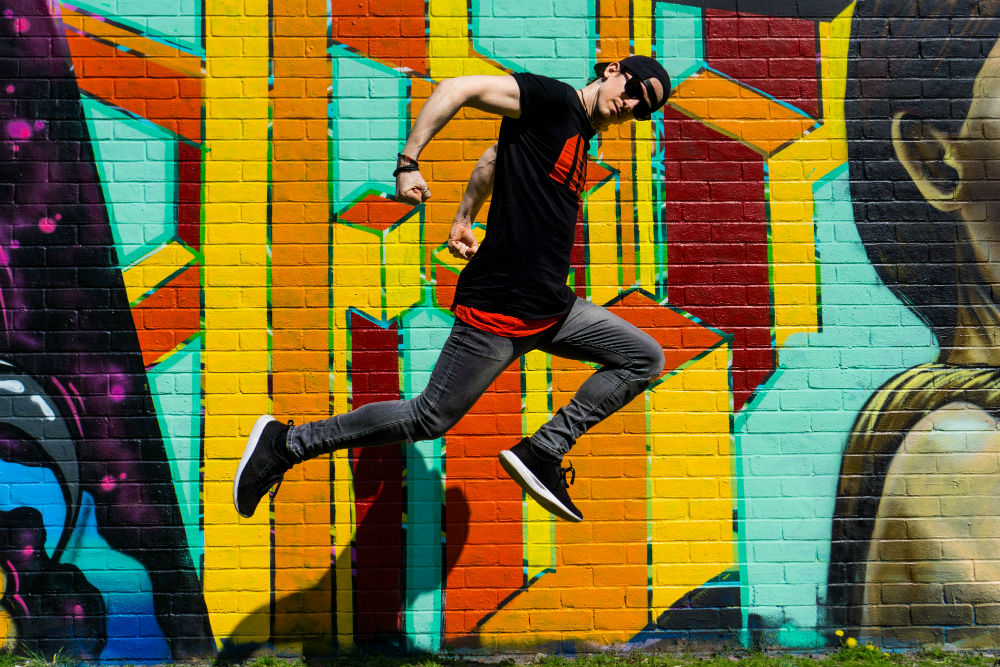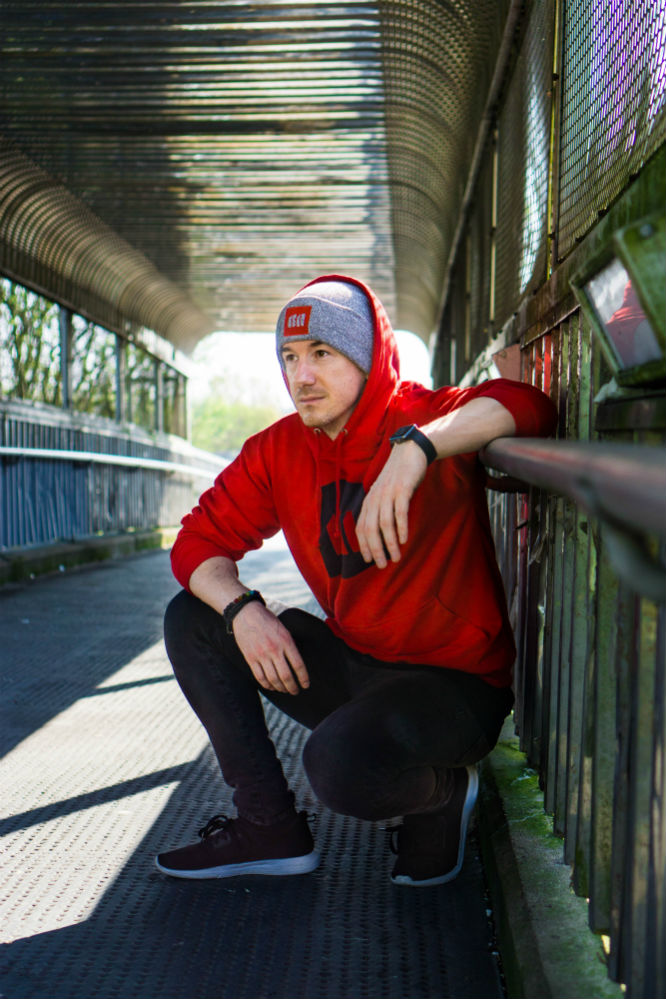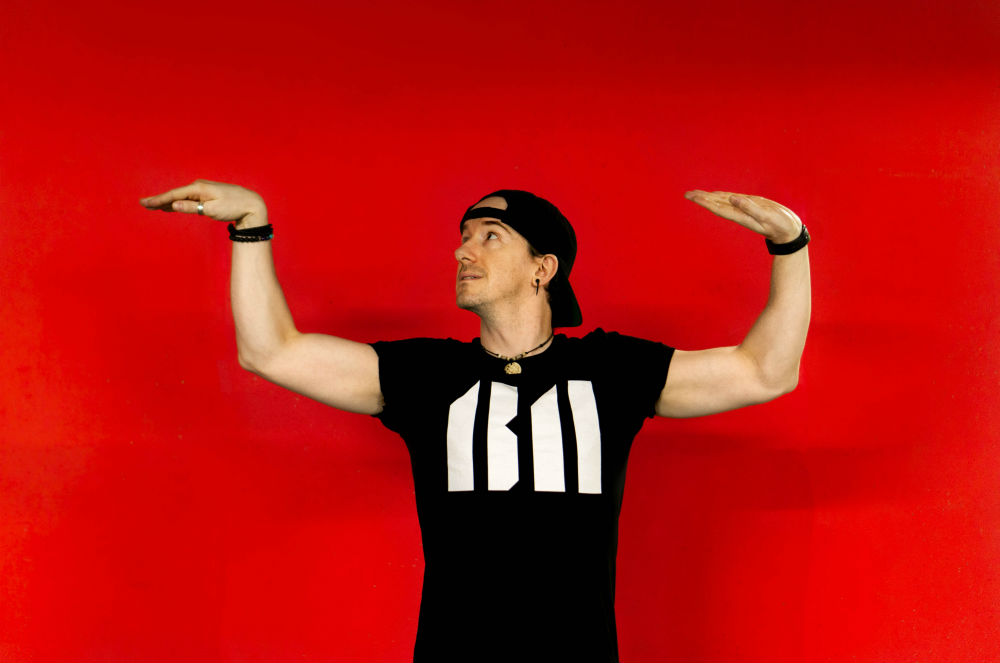Choreographing Sam Smith, Rod Stewart and Rick Astley, working on TV shows for the BBC and for brands including Renault and Panasonic, Brandon Hansford also teaches a full range of dance classes, as well as running a Youth Dance Company, and is now launching a free mental health dance class at the iconic Pineapple Dance Studios in London on Sunday, May 26, from 10am-12pm, to help people expressing their feelings through movement and dance.
Female First got hold of five spaces, which the first five readers of this article can claim! RSVP by emailing [email protected] ASAP!
Here, Brendon chats about the workshop, as well as his career and more...

Tell us more about your upcoming dance workshop, ‘EXPRESS YOURSELF THROUGH THE POWER OF DANCE’, and what can people expect from the class?
The workshop is very personal to me. As a child growing up, I was diagnosed with M.E. (chronic fatigue syndrome) and following that I severely struggled with confidence and my mental health. The thing that helped me get through tough times was to dance and express myself. I still struggle but when I dance, it releases any negativity or strain, allowing me to let go of the emotions through movement. I want to offer the same opportunity to others and allow them to express themselves without the need to speak but using the power of dance and movement. I want to help people going through similar experiences and make a difference in their life.
You choreographed pop superstar Sam Smith for the music video of his latest hit single Dancing With A Stranger, as well as the dancers that haunt Smith. How do you approach working with music artists and creating dance movements that would perfectly depict their songs’ feelings and emotions?
Good question! It is definitely a process and I work very closely with the director to help bring their vision alive. In the case of Sam Smith it was the amazing Vaughan Arnell who is just an incredible director.
To start with you get a brief and the song sent through as first contact. I have to then digest as much information from the brief, ideas, lyrics and vibe of the music. Then I get started with working on the movement/dance to present to the director for approval, this can be me myself and I or a room full of dancers, again depending on the brief. All shoots are different and so it's hard to give a single process, in the sense that some have strict guidelines with intense rehearsals and others are very free and we have to create on the day of the shoot.
To answer your question in short; there is no single approach or method, every artist is individual and you have to be highly adaptable to every situation. There is a lot of thinking/working on the spot to achieve the best results.
Can you explain how dancing affects the mind in the long run? The benefits dancing has on mental health and why dancing can help keep your body and mind healthy?
Let me break this down into physical and mental as they both have a short and long term effect.
Physically dancing is a fun form of exercise and we all know that exercise is good for the body and keeps us fit, strong and healthy. What people don’t realise is that when you’re in a dance class you are not just simply moving your body, you are listening and looking for instructions, trying to put those instructions onto your body in a way your body has not moved before, you are listening to the music and trying to identify specific musical cues laid out by the teacher, you are trying to interpret the movement in the way the teacher has created it and all while trying to keep up with the class. This is a massive task and I can only relate it to learning something completely new every day!
All this doesn’t just improve your physical fitness.
Your cognitive processes become sharpened and heightened allowing you to think faster and problem solve quicker which 100% spills out into all the other areas of your life, making you more confident in dealing with situations.
Generally speaking you are never in a class on your own and you will interact with other people all in the same place, whilst doing the same thing. Having this hobby/talent in common gives people things to speak about and allows you to build a bigger social circle and ultimately again, builds your confidence in ways you would never get in other social situations.
To dance is a pleasure! When you're dancing you are sweating, losing weight, feeling fitter, growing in confidence, learning something new, challenging your brain and doing it with people who have a common interest. As if that wasn’t enough, your body is constantly releasing dopamine which is the happy chemical in the body.
Also, did I mention that you get to listen to your favourite music while doing all of this?
I am not a psychologist or a scientist and can’t give you facts, figures or a hypothesis on why it’s so great for your mental health. What I can do is give you real life examples. I have watched numerous people come to class for the first time, all timid and shy like I once was and within six weeks they are dancing with their heads up, asking questions, talking to new people and just overall looking happier and healthier.

What is the biggest challenge for you while teaching non-professional dancers?
At last an easy question! There isn’t much of a challenge involved as I love teaching newbies to the class. It actually brings me so much joy to watch them improve. I have a beginner class on Saturday’s at 2pm at Pineapple Dance Studios which is dedicated to helping people get into dance.
You produced, directed and starred in Building A Dancer, a true-life documentary about the reality of being a dancer. Why are we still so bad at addressing dancers’ mental health?
I don’t want to say that we are bad at addressing it as that isn’t fair. I’m sure people aren’t seeing and ignoring the issue. I truly believe that the education just isn’t in a place to help people and when I say education I also mean the educational system. The system is still teaching methods written many years ago, way before the rise of social media which has brought a bunch of new problems with it. I believe that education needs an update and a refresh. Dancers are leaving education with the belief that they know what they are doing and how to do it and then getting to the dance industry and realising that the methods aren’t working. This leads to a couple of outcomes:
- The dancer feels like they are a failure and gives up.
- The dancer seeks help from people working in the industry.
Unfortunately, the amount of people who are category one is a lot higher than you can imagine.
What advice do you have for anybody trying to carve out their own career in this industry?
I could honestly write a thesis on this subject! However, you wouldn’t get this article in time for publication.
My number one piece of advice for dancer coming into the industry is to treat yourself like a business and become entrepreneurial fast. As mentioned in the question above, the growth of social media and online content in general has completely changed the game and it is almost impossible to get anywhere in this new world if you do not have a presence online. This career is no exception. You can be the most amazing dancer in the world, but if no one knows you exist, it will be a short lived career. The documentary I released called ‘Building a Dancer’ on iTunes, Amazon and Google Play takes one dancer who was ready to give up through a branding process in 30 days, showing the rollercoaster journey and what is possible with the right information. She is now touring the world with musical ‘Bodyguard’, so I think I did a good job.

Are there any music artists you’d love to work with in the future?
Yes, all of them! But, if you had to make me choose my top three... I would love to work with Ed Sheeran, Justin Timberlake and Pink.
What have been some of the biggest challenges in your career to-date?
I am 100% a workaholic and if I had more hours in the day, I would work some more. Based on my history with M.E. it is always worrying that I could one day relapse or simply get burn out. I struggle to make time to relax and take my head out of the dance world and work space. You could say this is an ongoing challenge.
Comparatively, what have been some of your biggest highlights so far?
My biggest highlights all happened in the second half of last year. Between July and December I got to work with Sam Smith, Rick Astley, Rod Stewart, The Royal Variety Performance and do a workshop tour around Asia. It was non-stop and I couldn’t have been happier!
Tagged in Mental Health

